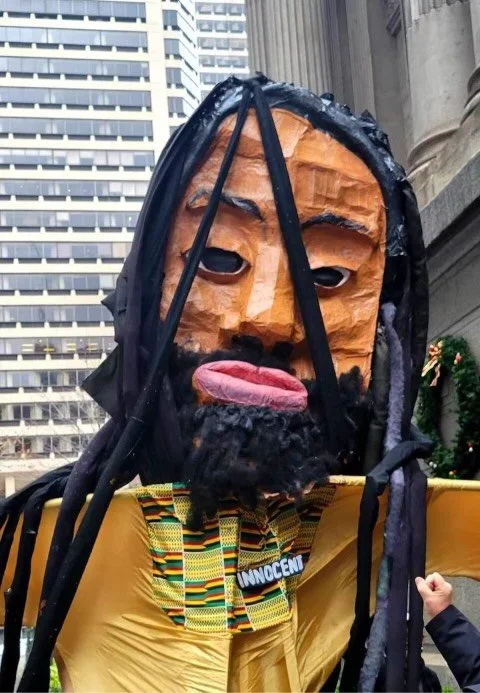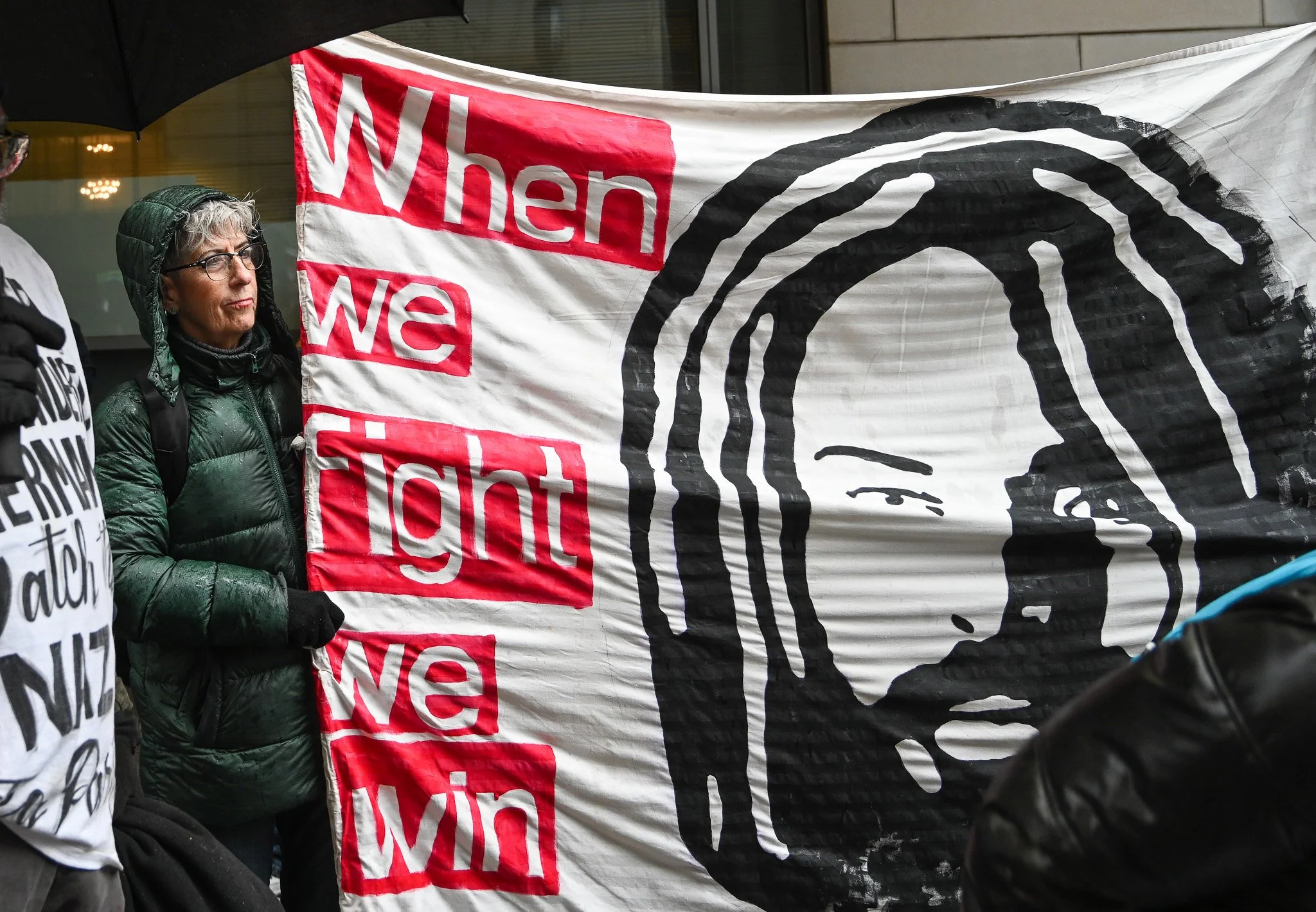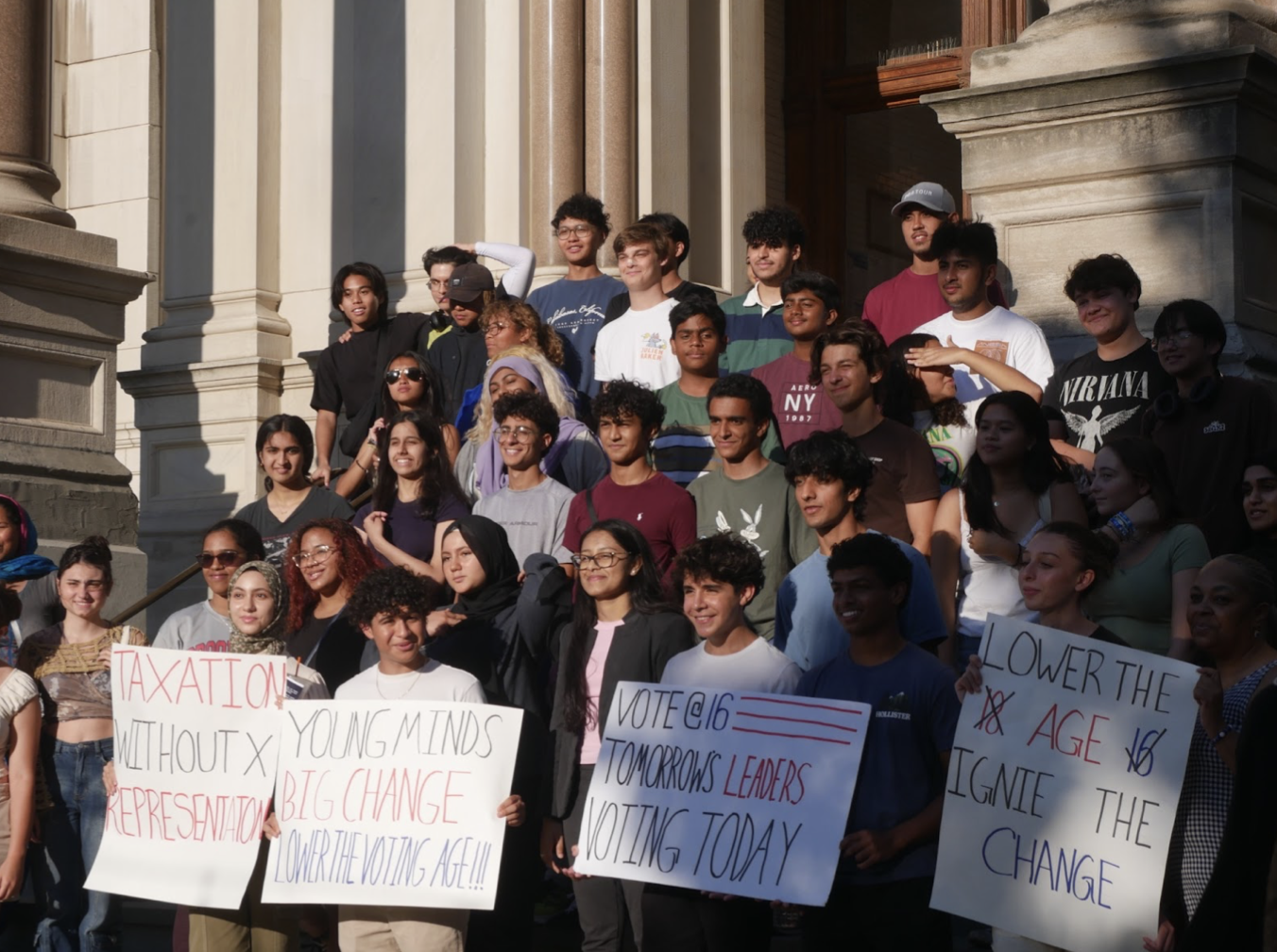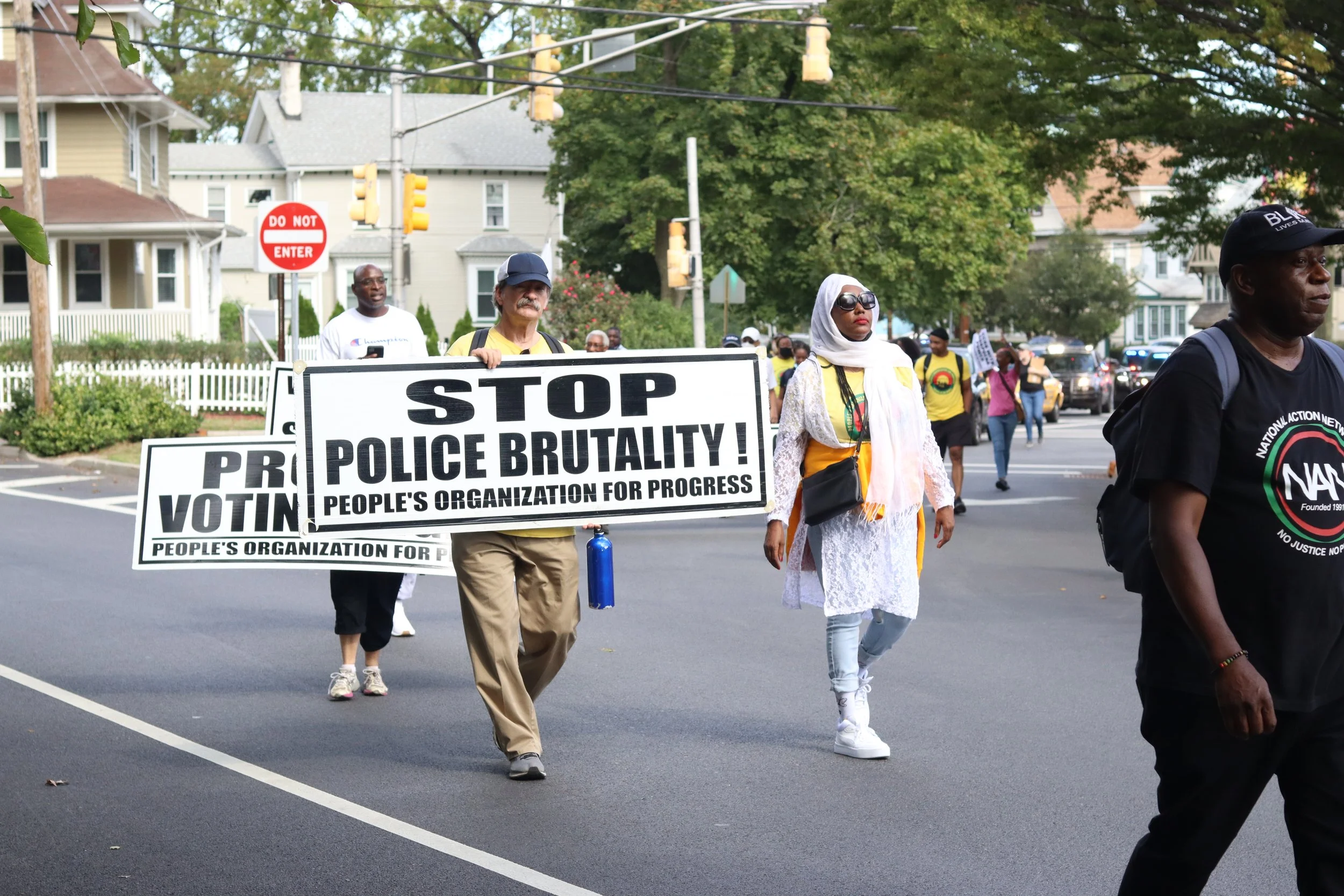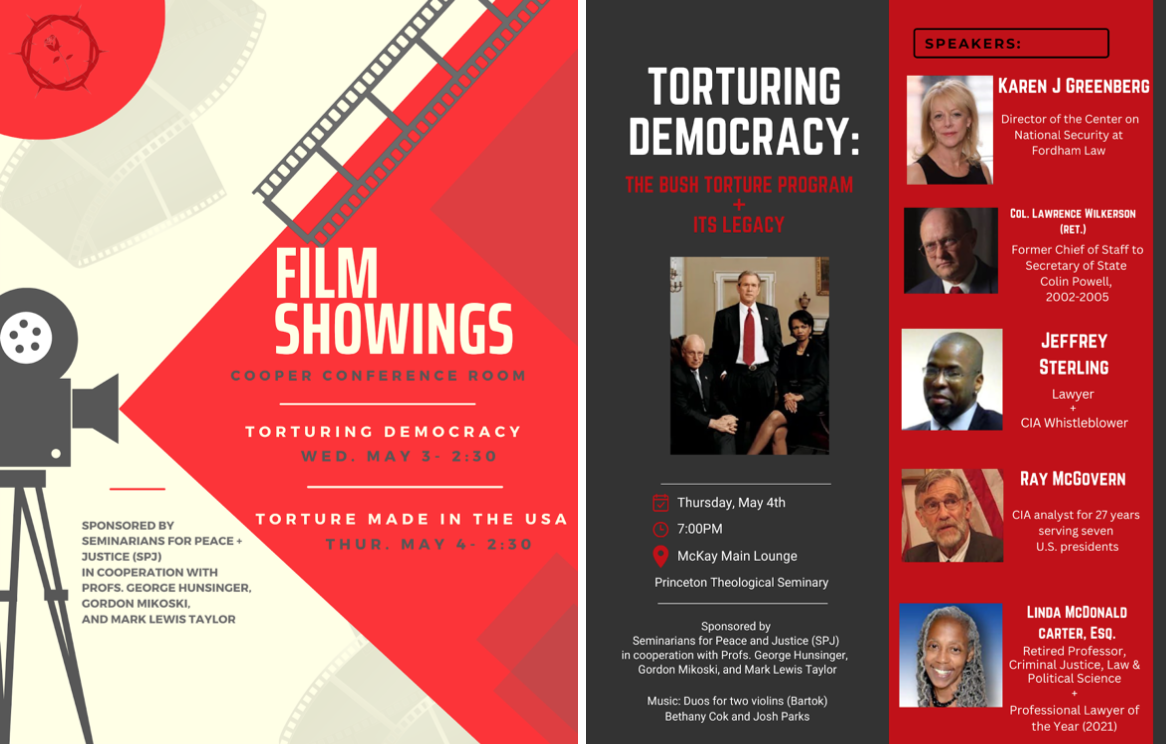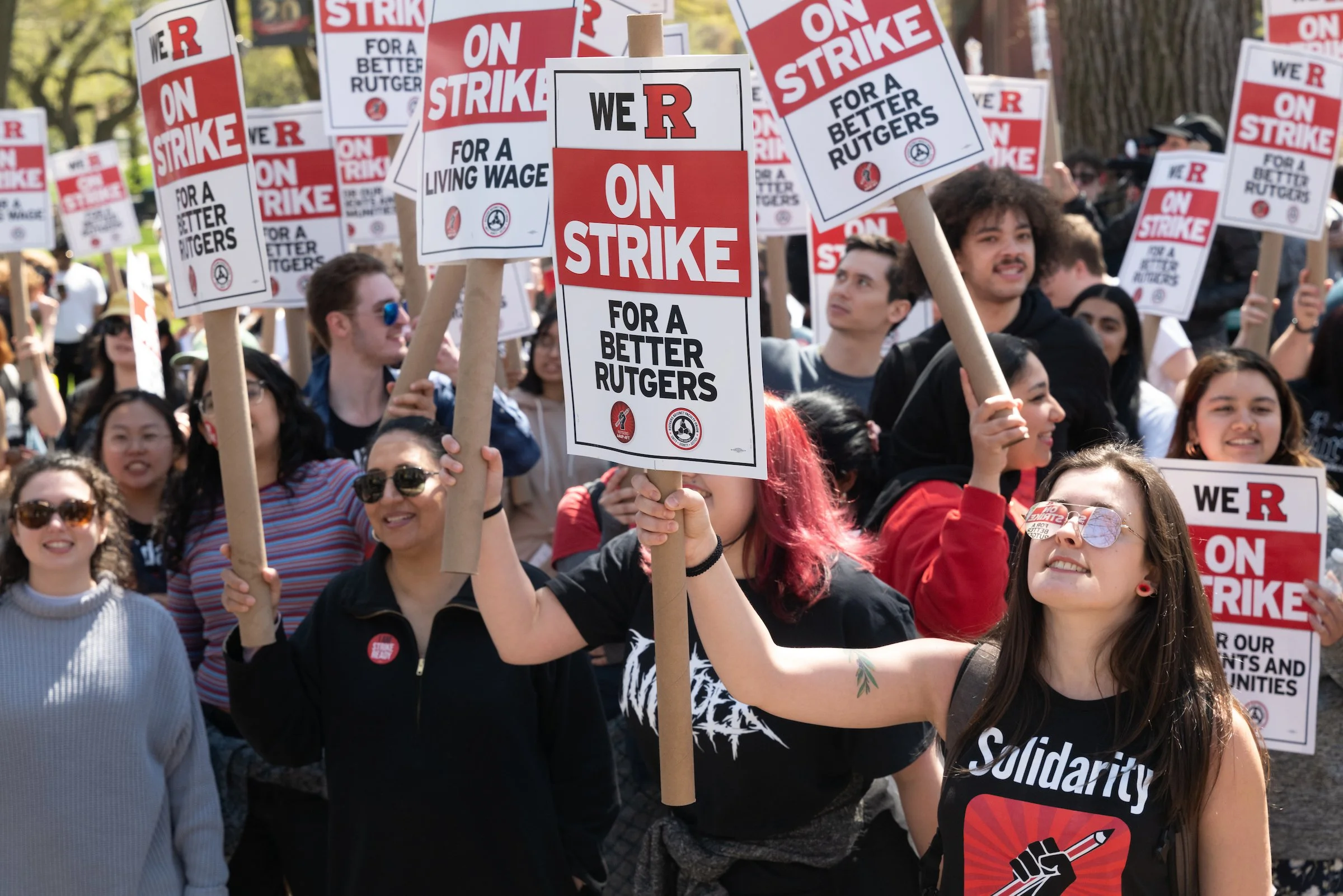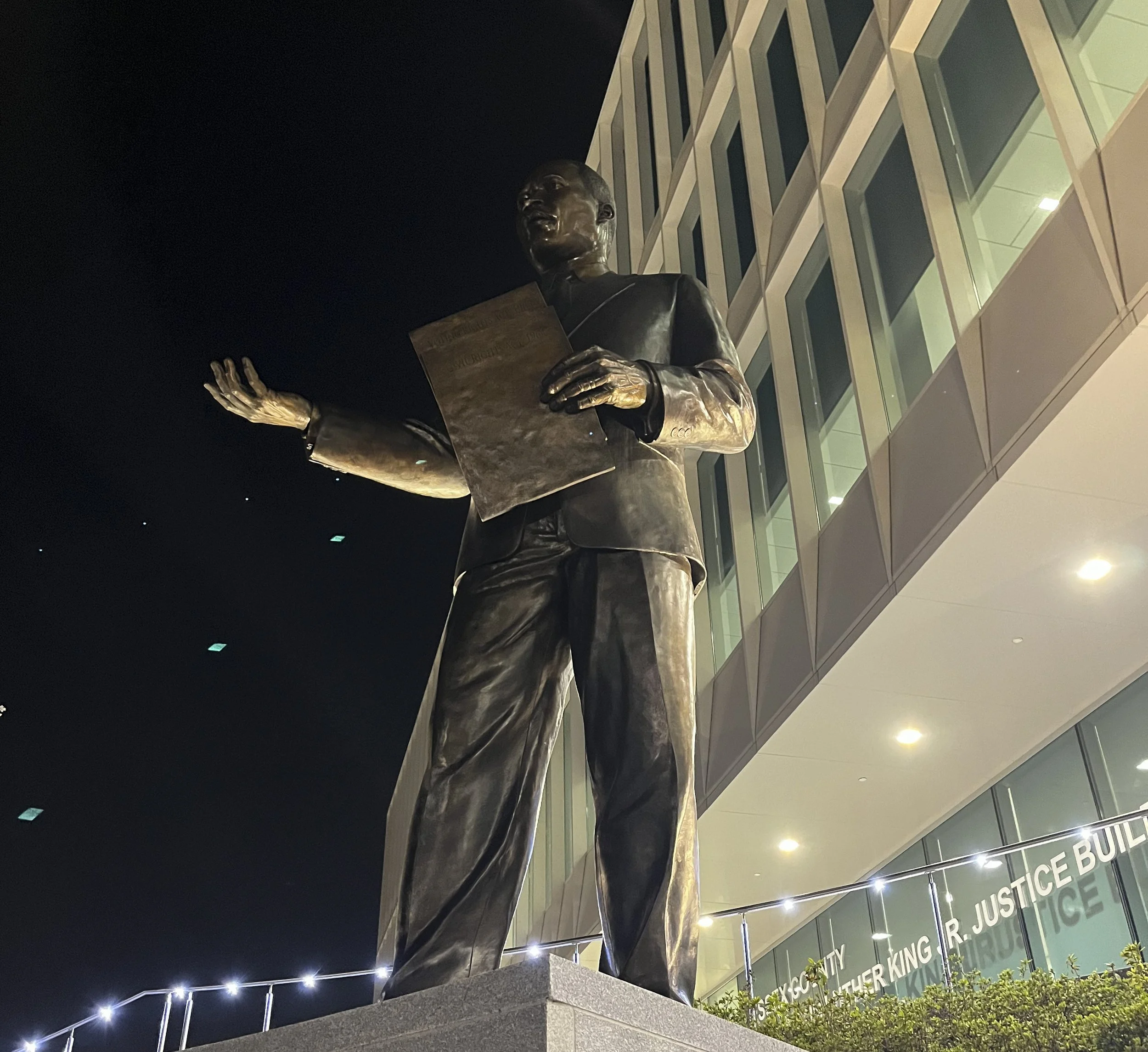Older Democracy and Politics Articles
Return to current Democracy & Policy News
NJSPJ’s recent webinar raises more than concern, it may have ethical implications
On Sunday, September 22, the New Jersey Society of Professional Journalists (NJSPJ) hosted a webinar with the Executive Director and Editor of HonestReporting.com, Gil Hoffman. Initially suggested by Steve Lubetkin, NJSPJ board secretary, then championed by Kenneth Burns, board president, it is unclear how much research and effort was made to ensure the guest was appropriate for the topic.
Commemorating Black August at The HUUB
On Wednesday, August 28th, a coalition of abolitionists and organizers hosted an annual commemoration of Black August at The HUBB in Orange that brought together political prisoners, academics, returning citizens, and fellow community members.
A new initiative to document public meetings in New Brunswick, N.J., will use art to build civic engagement
Debates at city hall have been called lots of things by lots of people — obfuscatory, corrupt, insulting, biased, protective of special interests, among countless others. But the discourse has rarely been called or considered “art.” In New Brunswick, coLAB Arts is implementing a new program, “Documenters,” part of a nationwide effort, to provide community residents with reports on the discussions and decisions that occur at public meetings. But coLAB Arts isn’t stopping there — it also plans to leverage the reporting to inspire and support the creation of art. Ultimately, this art inspires, catalyzes and drives community engagement — a key aspect of the organization’s mission.
Teens push for the right to vote, but civic education remains ambiguous
In January, Newark became the first city in New Jersey to give 16- and 17-year-olds the right to vote in local school board elections. It was a major victory for student advocates, who are now building on the momentum to win the franchise in other cities.
New Jersey women journalists weigh the tenets of modern journalism: Part 3
In our final installment, three women journalists discuss the importance of owning one’s narrative and identity within a media landscape grappling with the construct of modern journalism — ideas that shape many of the concepts confronting white and non-White journalists including inclusivity, bias and objectivity.
Hamm rallies Dem voters to vote “uncommitted” in presidential primary
In this exclusive column for Public Square Amplified, senatorial candidate Lawrence Hamm, founder of the People’s Organization for Progress, explains his decision to vote “uncommitted” in the upcoming New Jersey presidential primary, taking place June 4. Hamm is the only candidate in the primary who has said he will vote “uncommitted” to protest the war in Gaza.
New Jersey women journalists unpack racialization in newsrooms: Part 2
In part one of this series, we featured stories of success, struggle and purpose from three remarkable women journalists who built their careers in primarily white-male-dominated newsrooms. For part two, we sat down with three more remarkable women journalists in the state working to establish a more equitable and inclusive media landscape that centers the narratives of communities being pushed to exist on the periphery of mainstream media.
New Jersey women journalists confront the politics and economics of gender in journalism: Part 1
In light of the importance of journalism for a cohesive civil society, healthy democracy, well-informed public and transparent government, some of New Jersey's most remarkable women journalists reporting on cities and communities around the state will share their stories of success, struggle, purpose and wisdom: What drives their work despite the challenges, the importance of white and non-white women in journalism, and tips and insights for others looking for support and inspiration in the field.
How the “Free Mumia” movement rocked Black journalists in 1995 and how the case still resonates in 2024: Part 3
In 2024 and beyond, it might be hard for those who have grown up with the World Wide Web, and social media in particular, to understand that there was not an instant grapevine in 1995 for Black journalists from across the nation to immediately learn about the First Amendment violations of a convicted murderer in Philadelphia who was an affiliate president 15 years prior to the 20th anniversary NABJ convention.
Journalism and advocacy in the 1995 Mumia Abu-Jamal and National Association of Black Journalists controversy: Part 2
NABJ was an easy target for the “Free Mumia” movement because the traditional professional journalism values of objectivity and detachment, according to the group’s president, prevented it from taking a political position. But this only raised some important questions: Don’t people form organizations in order to be able to take a collective stand? Doesn’t the organization provide a cover, a collective shelter of the results of private votes, in order to do what you could not get away with as an individual? How come, at least for NABJ, the situation seemed to work in the reverse?
Mumia Abu-Jamal turns 70 this year: A look back at the 1995 “Free Mumia” movement’s clash with the objectivity of the National Association of Black Journalists
The professional maxim in the journalism profession, at least in mainstream quarters, is that a journalist should never be part of the story he or she is covering. It’s a challenge to the mainstream journalist, who always has to draw the fine line between observing and participating.
Photo Essay | In all their sublimity, “Free Palestine” marchers take on the dusk into the night in Newark
Newark, NJ - On November 9, the growing global movement for a "Free Palestine" took to the streets of Newark for the Shut It Down for Palestine rally and march; the third time in under a month.
In his Black-and-White medium, Brian Branch Price, Public Square Amplified photojournalist, and editor, narrates the Palestinian community's profound rage, indomitable spirit, and unwavering determination to end the war on Gaza, and he and they find a narrow space that allows him both distance and intimacy.
Jersey City teenagers rally at City Hall to lower voting age for school board elections
Standing atop the steps with Ali are Abeera Saeed, the co-founder of the Ali Leadership Institute and Yale graduate; Uriel Bruno, a junior at County Prep High School, Azra Bano, a Piscataway High School senior, and Zachary Yabut, a High-Tech High School senior. Attendees rallied at city hall to demand state officials lower the voting age to 16 for school board elections.
Aside from building the Vote@16 initiative, which organized the rally, Bano is also co-chair of Vote16NJ. She said the impetus for the rally stemmed from earlier movements like the one in Takoma Park, Maryland, the first city in the United States to allow 16-year-olds to vote in local elections.
Prisons, policing, and cop cities: They cannot exist in a democratic society
There are two definitions of the word “democracy” that are critical to understanding the core principles that should guide organizers and activists. The first is from the Oxford Languages, which reads that democracy is “the practice or principles of social equality,” and the second is from Webster, which says that democracy is “the absence of hereditary or arbitrary class distinctions or privileges.”
Black August commemorated: A teach-in to educate and inspire
MONTCLAIR, NJ–When Renée Johnston received an invitation from the Black Alliance for Peace (BAP) to direct a teach-in about Black August, she was excited to convene fellow New Jersey-based organizers for an evening “about education and purpose.” Through her outreach, a small group of leading activist organizations–unified by their belief in abolition and commitment to organizing–gathered in Montclair on Wednesday, August 23, to learn. Ensconced in an intimate gathering space beneath a restaurant for nearly three hours, attendees deepened their knowledge of the plight of the Black political prisoner in the United States of America.
Is Princeton peddling warmongering? Students call out Condoleezza Rice speaking to the campus community
On May 8th Condoleezza Rice spoke to the Princeton Theological Seminary community as part of the Intuition’s inaugural forum series on faith and American democracy called, The Future of American Democracy. According to the series’ promotional material, its intention is to address the uncertain political realities of our time by discussing topics from polarization to bipartisanship.
Rutgers academic workers strike: New Brunswick undergrads speak out in support
Unions representing faculty and workers at Rutgers University added to the rich history of the importance of organizing for workers' rights: On April 9, some nine months after working without a contract, 94 percent of the members of three unions across the three campuses voted for a strike.
In New Brunswick, students joined unionized faculty and staff marching down George Street and onto the main campus outside the Scott Hall building at Voorhees Hall, calling for a fair contract with fair wages and benefits.
Activists hold overnight vigil on the anniversary of Martin Luther King, Jr.’s assassination
Fifty-five years later, his legacy stands: "The deep rumblings of discontent that we hear today is the thunder of disinherited masses, rising from dungeons of oppression," Martin Luther King, Jr. – Where Do We Go From Here: Chaos or Community.
On April 4, the People's Organization for Progress (POP) held its annual march, followed by a vigil to commemorate the assassination of Martin Luther King, Jr. (MLK) The rally brought forth organizations and individuals from across the state and river on the front lines of racial, political, and economic justice today.









